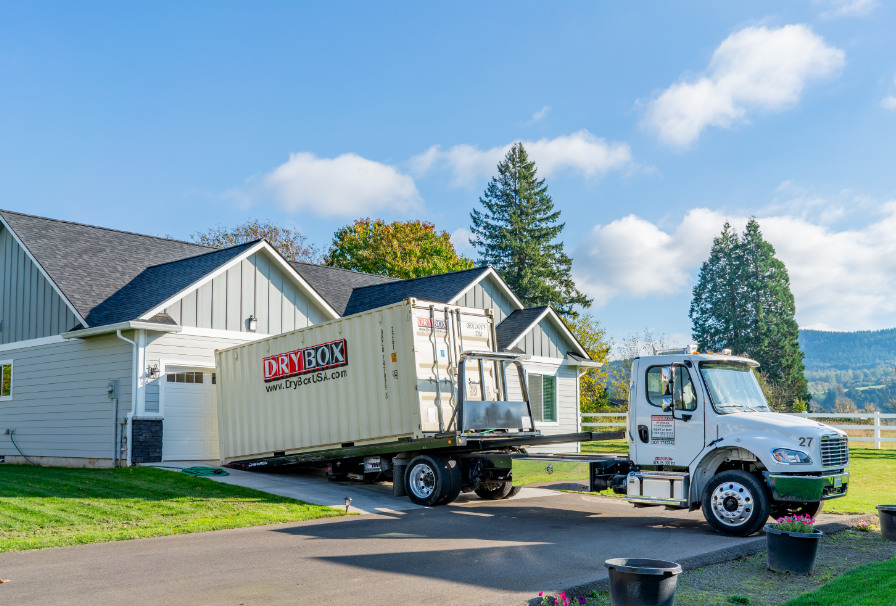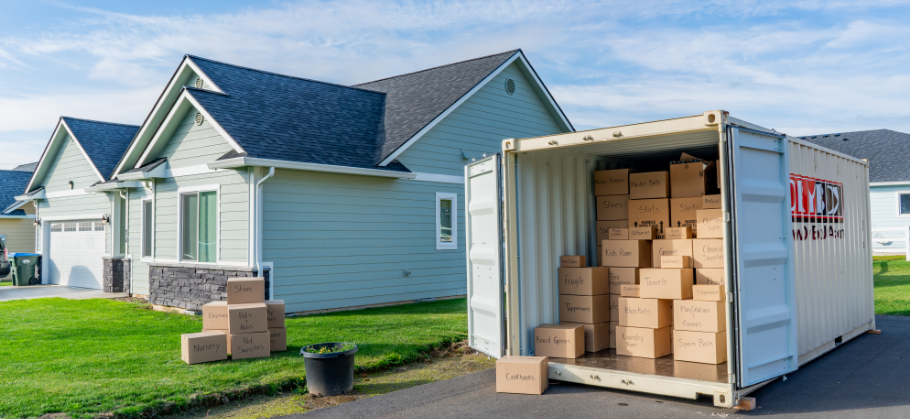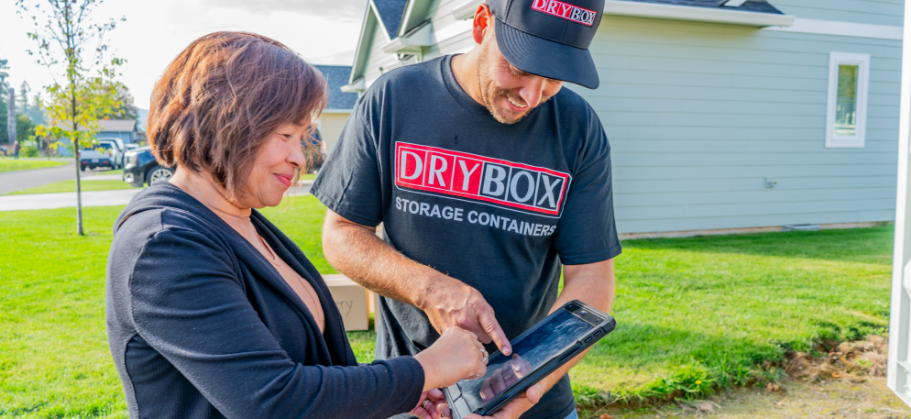Should You Rent or Buy a Shipping Container? Weighing the Pros and Cons
So, the decision is made: you're getting a shipping container. But now comes the big question: should you rent or buy a shipping container?
Renting vs buying a shipping container each comes with its own set of pros and cons, and after using up all your brainpower just deciding to get one, this next choice can feel like a major hurdle. Before even getting to that, you've probably already been questioning the size, the intended use, and how to prep your space to accommodate it.
We'll try to give some clarity to help you with your decision.

Renting vs Buying Shipping Container: Things to Consider
Some things need to be considered before you decide whether to buy or rent a shipping container. It all boils down to these four questions:
1. Are you capable of managing the container independently?
Managing a shipping container isn't just about owning it; it comes with responsibilities like maintenance, repairs, and transportation logistics.
On the other hand, renting often includes services like maintenance and relocation, making it a hands-off experience. Consider whether you have the time, skills, or resources to manage it long-term.
2. How long do you plan to utilize the container?
Renting might be a better choice if you only need the container for a short-term project or seasonal storage. But, if you're looking for a long-term or permanent solution, buying could save you more in the long run, as rental costs can add up over time. Knowing how long you plan to use the container will help steer your decision.
3. What type of container structure best suits your needs?
Not all containers are created equal. There are various sizes, conditions, and customizations available. Renting may limit your choices, but it allows you to swap or upgrade containers more easily.
Buying, however, gives you complete freedom to modify and customize the container to fit your specific needs. Determine what structure will serve you best and whether renting or owning aligns with that.
4. What is your available budget for the container?
As mentioned, your budget can make or break this decision. Renting a container typically requires lower upfront costs but may be more expensive over time. Buying involves a higher initial investment, but you gain ownership and long-term control.
The Pros and Cons of Renting vs Buying a Shipping Container
Let's try to look at the pros and cons of renting and buying in detail:
Pros of Storage Containers For Rent
Pro #1: It provides flexibility for short-term needs
Renting is ideal if you only need a container temporarily. It allows you to use the container without a long-term commitment, allowing you to return it when you're done.
Pro #2: It has lower upfront costs, making it cost-effective in the short term
Since renting doesn't require a large initial investment, it's a more budget-friendly option if you're trying to keep costs down, especially when compared to the high upfront cost of purchasing a container outright.
Pro #3: Easy transportation logistics handled by the rental provider
Most rental agreements include delivery and pick-up, saving you the headache of arranging transportation. This is a significant convenience, especially for individuals or businesses that don't have access to large-scale transportation.
Pro #4: Allows you to test the container before committing to ownership
Renting gives you the opportunity to “try before you buy.” If you're unsure whether a shipping container is the right solution, renting lets you assess its usefulness without the risk of full ownership.
Cons of Renting a Shipping Container
Con #1: Can become more expensive if used long-term
While renting is cheaper in the short term, long-term use can add up. Over time, the cumulative rental fees may surpass the cost of buying, making it less financially sensible if you need the container for an extended period.
Con #2: You can't modify or sell the container
Since you don't own the container, you're limited in how you can use it. Modifying the structure isn't typically allowed, which can be restrictive if you need to customize it for specific purposes. You also can't sell it later if your needs change.
Con #3: May not be approved for all uses
Rented containers often come with usage restrictions. If you need the container for something beyond standard storage, such as permanent installation or significant modifications, renting may not be the best option.
Con #4: You might be responsible for damages during the rental period
Even though you don't own the container, you could be held liable for damages that occur while it's in your possession. This adds a potential financial risk to renting, especially if repairs are needed.

Pros of Buying a Shipping Container
Pro #1: A long-term investment with ownership and control
Purchasing a container provides full ownership, which means you have complete control over how it's used. It's a one-time investment that can save you money in the long run if you plan to use it for years.
Pro #2: You can modify the container to suit your needs
As the owner, you're free to customize the container however you like. Whether you want to convert it into a workspace, add shelving, or install climate control, owning the container gives you the flexibility to adapt it to your specific requirements.
Pro #3: Potential tax benefits
In some cases, owning a shipping container can offer tax benefits, particularly for businesses that use the container as part of their operations. It could be eligible for deductions or depreciation, helping you save on taxes.
Pro #4: It can be rented out to generate income
If you no longer need the container or only use it periodically, you can rent it out to others, generating a passive income stream. This makes buying potentially profitable in the long run.
Cons of Buying a Shipping Container
Con #1: Higher upfront costs compared to renting
Buying a shipping container requires a significant initial investment, which can strain your budget, especially if you don't have immediate or long-term plans for it. This is the biggest financial hurdle for most buyers.
Con #2: Requires management of transportation and logistics
Unlike renting, where delivery and pick-up are often handled for you, owning a container means you're responsible for moving it. Transportation can be complex and costly, especially if you don't have access to the necessary equipment.
Con #3: Containers may require maintenance over time.
Even though containers are designed to be durable, they will still wear down with use and exposure to the elements. Maintenance costs and the eventual need for repairs or replacements are factors to consider when buying.
Con #4: Once purchased, it may not be as flexible if your needs change
If your storage needs change or you no longer require the container, selling it or repurposing it might be more difficult than simply ending a rental agreement. Owning ties you to a long-term commitment, which may limit flexibility.
Conclusion
Deciding whether to rent or buy a shipping container ultimately depends on your specific needs, budget, and how long you plan to use it.
Renting offers flexibility and lower upfront costs, making it ideal for short-term projects or when you're uncertain about long-term storage. It also eliminates the hassle of transportation and maintenance, which is a major convenience for many. However, renting can become costly if used long-term, and you'll face limitations on customization and usage.
On the flip side, buying a container is a smart investment for those who need long-term storage or want full control over modifications. While it comes with higher initial costs and the responsibility of managing logistics, owning a container offers flexibility, potential tax benefits, and the option to generate income by renting it out.
Consider these factors carefully to make the best decision for your situation, ensuring you choose the option that aligns with your needs and budget.

Get the Right Container Solution with Dry Box
Whether you're looking to rent or buy,Dry Box is here to help you find the perfect shipping container for your needs. Our wide range of high-quality containers offers flexibility, durability, and customizable options, no matter your project or business requirements.
Ready to make the right choice for your storage or workspace? Contact Dry Box today to explore our rental and purchase options, and let us help you find a container solution that works for you!









